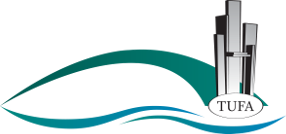Dear Colleagues,
TUFA officers and staff are preparing for a very full 2025 and will be sending out additional messages in the coming weeks as we open our nomination process, announce dates for multiple general membership meetings this semester, and launch our bargaining consultation process. At the moment, the following matters warrant your attention.
1. TUFA Presidency and elections
Our friend and colleague, Geoff Navara, is taking a leave this semester and has decided to resign as TUFA’s President. Consistent with our Constitution, the Executive Committee has appointed the Association’s Vice President, Dwayne Collins, to serve as Acting President until the date of our next regular officer rotation (April 30th). Members can expect to receive an email from the Nominating and Election Committee opening nominations for the 2025/26 Executive Committee in the coming weeks and the Nominating Committee will factor these changes in their work.
2. University policy comments
In late November, the University posted revisions to three important policies (Discrimination and Harassment; Free Speech; Information Security) on the portal, but received little feedback on them. TUFA’s Joint Committee had been closely consulted by the employer on the revisions to the Discrimination and Harassment Policy (in large part, because it forms part of our Collective Agreement) and we ensured that the proposed revisions were limited to changes necessitated by passage of provincial Bill 166 (the so-called Strengthening Accountability and Student Supports Act). With regard to the other two policies, we have been granted an extension for TUFA to comment on the revised Free Speech Policy as well as the revised Information Security Policy (and related Data Classification and Handling Guidelines). Anyone having concerns or comments about any of these three documents – all attached to this email – should share those comments with the TUFA Office by close of business this Monday (January 13th) so that we can fully contemplate your feedback in finalizing the Association’s comments on these policies.
3. Indigenous Academic Staff Members’ Experiences at Post-Secondary Institutions
The Canadian Association of University Teachers (CAUT) is conducting a survey of Indigenous academic staff members’ experiences at post-secondary institutions. This survey aims to understand Indigenous academic staff members’ academic pathways and experiences on campuses across Canada. It is sponsored by the CAUT’s Aboriginal Post-Secondary Education Working Group which serves as a forum for discussing issues related to Indigenous academic staff. The working group makes recommendations on initiatives that the CAUT and its local associations should take to advance the diverse interests of Aboriginal academic staff in universities and colleges in Canada. This survey is separate from the one circulated in the fall by the Assembly of First Nations (AFN). The CAUT’s online survey is open to all Indigenous post-secondary academic staff employed at universities and colleges across Canada and is focused on: pathways into academe/mobility; teaching and research approaches and experiences; service and governance experiences; tenure and promotion process; and the campus environment. The deadline for completion is January 17, 2025, and a link to the survey is included in the attached invitation letter.
In Solidarity,
Marcus
